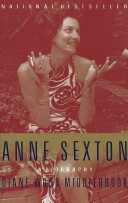 I met Catherine Kaikowska my senior year of college, in an 8 a.m. poetry class.
I met Catherine Kaikowska my senior year of college, in an 8 a.m. poetry class.
She was all black. Turtleneck. Boots. Leggings. All hair. Brown. Shoulder length. Wide and kind of frizzy. She hiked herself up on the desk, crossed her legs in front of her and cracked open a can of Diet Coke. “Fuck, it’s early,” she mumbled.
I liked her right away.
She liked me too, and invited me to meet her at The Peanut Barrel – an East Lansing institution known for good burgers, cheap pitchers of beer, and peanut shells covering the floor – where we sucked down Labatts Blues, chain smoked and talked about sex until closing.
She was from Ohio, and used to work the door at a club where Chrissie Hynde played before she made it big with The Pretenders. The place she vowed she’d never return to until that time.
I haven’t thought about Catherine in a long time. Until last Thursday, when I slipped a biography of Anne Sexton into my robin’s egg blue Samsonite carry-on bag, circa 1972, and boarded a plane bound for Nashville.
I was first introduced to Sexton in Catherine’s class, along with Sylvia Plath, Adrienne Rich and her mentor at Michigan State University, Diane Wakoski. Yet my interests lied with the testosterone-rich voice of Charles Bukowski. The beatnik fantasy of Lawrence Ferlinghetti.
I pulled the book out – a tomb, really, nearly 500 pages, hardcover and wrapped in acetate that is supposed to protect it – at Midway Airport, after checking my orange hard-case luggage and picking up a mediocre Americano. Artist’s Date 19, surrounded by fellow travelers with faces tucked into ipad and smartphone screens.
If we are only as sick as our secrets, then Sexton was the picture of health – for she had none. She was transparent, as I have been described. Only more so.
Teacher and mentor John Holmes begged Sexton not to publish her darker, highly confessional poems. Advice she ignored, and turned into, “For John, Who Begs Me Not To Enquire Further.”
And yet, clearly she wasn’t well, as she took her own life at 45, just two years older than my 43.
Sexton threaded the stories of her life through men – how they reflected her. She was wildly flirtatious. A presence. And, at times, profoundly sad.
She tended to sexualize significant relationships. She had fluid boundaries.
She felt, at times, in competition with her mother. And was considered alcoholic.
She gave away her heart too easily.
In “More Than All the Rest,” a poem to her long-term psychiatrist Dr. Martin Orne, she writes:
“Oh, I have raped my inner soul/And give it, naked, to you,/Since my warm mouth and arms/might love, and frighten you.”
I saw myself. I looked around the airplane to see if anyone else saw me too.
I felt sick, like the medical-school student convinced she has contracted each disease she studies.
But I am not Anne. I didn’t suffer post-partum depression. I didn’t hand over my children to be raised by my mother-in-law. I don’t have children. I’ve never been pregnant.
I haven’t been institutionalized. I didn’t take my own life.
Sexton’s gift was making something out of her sick. Creating art. Allowing others to see inside the most shameful parts of herself and whisper, “me too.” In the process, she found both “her people” and herself.
Me too.
The plane touched down. I was 78 pages in. I slipped an index card into the book to hold my place, on it is a prayer I had written. My own words. My own healing.